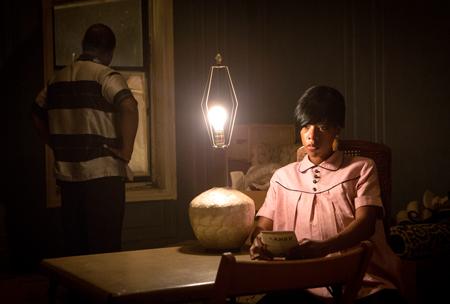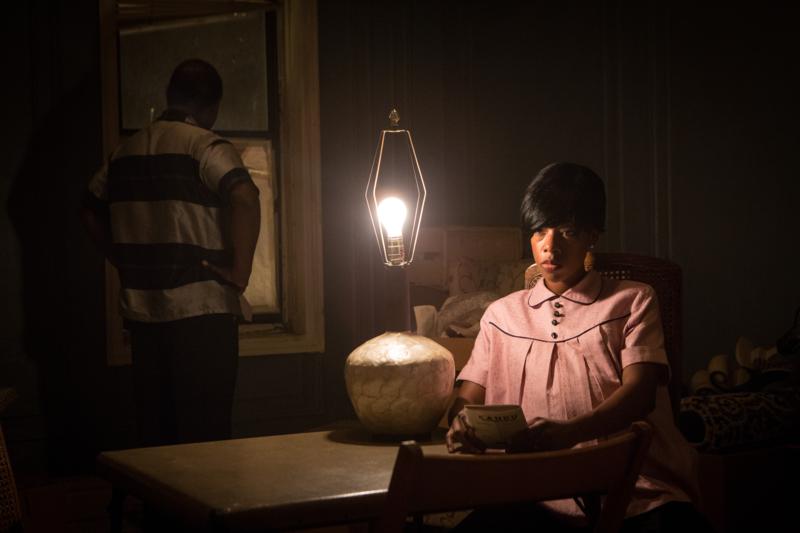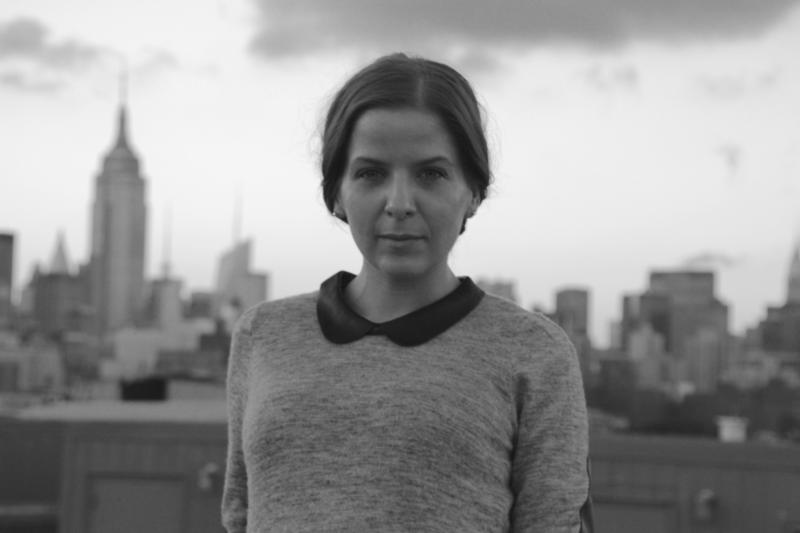"37 Who Saw Murder Didn't Call the Police," went a 1964 New York Times headline on the murder of Kitty Genovese, 28. The case caused an uproar because her neighbours in the Kew Gardens, Queens, apartment building reportedly watched and did nothing while she was raped and stabbed to death below their windows.
The murder today has a mythical status in New York, serving as a horror case of the sociological phenomenon that researchers have dubbed the bystander effect, or the Kitty Genovese syndrome. Studies show that the more witnesses are present at an accident, the lower the likelihood that someone will step up and intervene.
Almost 50 years after the murder, Puk Grasten, a Danish film student at NYU Tisch, stumbles on the headline while researching the bystander effect. Despite the great cultural significance of the case, no one ever based a feature on the actual story. Grasten decides to use the subject for her third-year film project, the 8-minute short "37" (2013), which she has now expanded into her first feature.
37 Photo: Regner Grasten Filmproduktion
Afraid to Get Involved
"The murder of Kitty Genovese was heinous. But what really caught my interest was the aftermath, where everyone pointed fingers and said it was someone else's responsibility," Grasten says.
The public debate seemed to imply that Genovese's neighbours had to be particularly bad people. Otherwise, they would have done something, right? "No one is a passive witness to this kind of thing because they want to. Their behaviour is a product of the bystander effect, which is created by social structures. We look the other way because we're afraid to get involved in the world."
The tendency to close yourself up as an individual or stick to your own social or ethnic group is more predominant today than ever before, Grasten contends. In New York, which she recently left after six years, she was surprised to find huge boundaries between cultures and races even among her friends, who felt most secure in their own micro-societies.
"I get the sense that our society is becoming increasingly more divided. Identifying someone's type by where they live is a very American phenomenon, but I'm afraid Europe is moving in that direction, too. Especially now, because of the refugee crisis, we're seeing signs that we're withdrawing into our own group when we see dangers from outside challenging the status quo. Looking the other way quickly becomes routine.
"But when we only mind our own business, we lose solidarity, and that hurts democracy. We forget that we're part of a whole," Grasten says, quoting President Bill Clinton from his speech on the 30th anniversary of the Genovese murder: "No nation hiding behind closed doors is free, for it is imprisoned by its own fear."
37 Photo: Regner Grasten Filmproduktion
One Family Even Makes a Birthday Cake
In the film, Grasten portrays the fear and tensions among New York social groups by following three families and a single white man who are all struggling with their own problems in a socially complex apartment building.
Two white middleclass parents are letting their marital problems hurt the kids. A recently moved-in black family feels threatened and the father insists on teaching his five-year-old son to defend himself. An elderly Jewish couple are being harassed on the phone, while they try to act like everything's normal around their grandchild, whose mother just took her own life. When the murder is committed, the children in the different families wake up horrified, but their parents pull them away from the window. Some turn on the radio. One family even makes a birthday cake in the middle of the night.
"I tell '37' from the children's perspective, because they're open, see the truth and want to help. But their parents teach them to look the other way. Their personal insecurity, desperation and feelings of being treated unfairly become their excuse for not risking their own safety to help an out-group member. They pass that mentality on to the next generation," Grasten says.
The actual murder, which happens halfway into the film, takes up relatively little time. "It's not so much about the murder as about all the other times during the day when the characters justify to themselves that it's okay not to get involved. Also, the neighbours actually didn't see very much of the assault. The truly horrible thing is that they didn't even go to the window," she says.
The film's exterior scenes were shot in Forrest Hill, Queens, right around the corner from the actual building, where the crew was not permitted to film out of consideration for the original tenants. The characters – including Samira Riley ("Orange Is the New Black"), Michael Potts ("True Detective"), Maria Dizzia ("Orange Is the New Black") and Adrian Martinez ("American Hustle") – are loosely based on the neighbours whose statements were taken down in the 1964 police report.
37 Photo: Regner Grasten Filmproduktion
Reared on Black and White Films
Grasten comes from a family of filmmakers. Her parents are the producers Regner and Tove Grasten, who are behind some of the most popular works in Danish cinema, especially for children and teens. Regner Grasten is best known as a skilful businessman, but beyond the popular fare he has also produced art films and he started his career as an arthouse cinema owner. Regner's mother, Kirsten Stenbæk, was a respected director of art films, and his father, Bent Grasten, was a screenwriter and film critic. "My father probably reacted by going in a more popular direction. I feel like I've landed somewhere in between. I want to keep making personal films, but it would be absurd to say I don't want an audience," Grasten says.
She and her older sister helped out on their parents' productions from the time she was five and drew the children's drawings for the opening credits of "Crumbs" (1991), one of the most popular Danish family films ever. And they watched an awful lot of movies.
"I found an old diary in my parents' house last year from when I was seven years old. In it I wrote, 'I was so tired in school today because mom and dad wanted me to stay up and watch a black and white film.' I was raised on films," Grasten laughs.
The indoctrination worked. She originally planned to become a producer and took a bachelor's in film production at the EICAR film school in Paris. But once she started her graduate studies at NYU, she quickly realized that directing held the real attraction. "I automatically picked the job of producer first because I had tried it before, but the directors always had more fun! The first time I was on set as a director, it gave me such a high. I called my parents and all they said was, 'We've lost you, haven't we?' 'Yeah,' I said."
37 Photo: Regner Grasten Filmproduktion
The family still works closely together: Puk is a script consultant on Regner Grasten's productions and Regner is a co-producer on "37." "When we were in the editing room, it was clear to me that he had 30 years of experience and a different eye for structure. It was great to have someone who knows me so well, and understood what I wanted to do with my story, fighting at my side," she says about working with her father.
It was sometimes a bit of a struggle transposing the Danish film culture into the American way of working, where the director has no real say, even on the indie scene, Grasten says.
For that reason, she is planning to locate her next project, an adaptation of novelist Janne Teller's "War," in Denmark.
"I feel like there's more headroom in Denmark – there's a greater willingness to experiment with new ways of telling stories. And I think audiences are ready to be surprised" •
More about the film
"37" is produced by Asger Hussain and Yaron Schwartzman for Regner Grasten Produktion and has received production funding from New Danish Screen, the Danish Film Institute's talent programme.
The film is Puk Grasten's feature film debut and is world premiering at Göteborg Film Festival (29 January – 8 February), in the curated Nordic Light series. Read press releases about strong line-up at Göteborg Film Festival.
Find more about film and director in factsheets right. More reading in New York Times' story Kitty Genovese Killing Is Retold in the Film 37.






